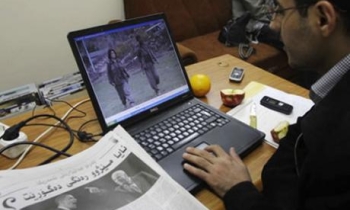With the government exerting severe repression, surviving as an independent newspaper in Zimbabwe has proven no easy feat, and the signing on 3 August of the Interception of Communications Law is only the latest of challenges. But in a country with an economy in shambles, economic challenges also have taken their toll.
“The greatest challenge we face in advertising and marketing is the declining economy, which has resulted in major advertisers such as retailers and manufacturers cutting back on advertising budgets,” Tendai Mutseyekwa, Marketing and Advertising Manager of The Zimbabwe Independent and The Standard newspaper group, said in an interview with RAP 21. The two papers, both owned by South Africa-based publisher Trevor Ncube, are the only remaining independent publications within the country.
“This situation has been made worse by the government’s directive for suppliers, retailers and service providers to drastically slash their prices,” Mutseyekwa continued.
According to Mutseyekwa, the ratio for advertising to sales is currently 80:20, but before the government’s directive it was 70:30. The situation has created even more pressure on advertising at a time when volumes are declining, so to attract advertisers, Mutseyekwa says they offer volume-based discounts, as well as cash discounts.
The government has at times made attracting advertisers difficult for their newspapers. As Mutseyekwa explained, advertisers are sometimes reluctant to buy space in an independent newspaper, under the threat of a government reprisal.
“While some may support us, there are others who are not so sure of themselves, and they tend to resist our publications or only advertise if the same adverts are in the government-controlled press as well,” Mutseyekwa told RAP 21. “However, this problem is largely confined to government owned companies, and others where Zanu PF, the ruling party, has a stake.”
In regards to sales, Mutseyekwa says they keep their goals realistic. Because of inflation, cover prices of newspapers have spiraled and many Zimbabweans cannot afford to buy them. “We are doing extremely well in terms of sales, but we cannot increase volumes because controlled cover prices are not sustainable. We are effectively subsidising our readers, but the situation does not make business sense to a commercial entity,” he said.
Mutseyekwa continued: “At the moment, we’d be quite happy to keep the business afloat because realistically it will be miraculous if we managed to increase advertising sales. We are trying to maintain volumes through innovative supplements targeting particular sectors and companies, depending on developments taking place in the economy.”
Apart from these problems, publishers are also faced with escalating printing and newsprint costs. With basic costs difficult to afford, state-owned competitors receive government aid, giving them an advantage.
“The state-owned newspapers enjoy indirect subsidies, on things such as fuel, making the playing field very uneven. They can use this to their advantage especially when it comes to advertising rates,” he said. “In short, they are protected by the government and are assured of full attention whenever they face serious economic challenges.”
Despite this, The Zimbabwe Independent and The Standard have continued to produce in an unfavourable environment. “Our production is very good. We use better quality newsprint that we import from South Africa, and are also more responsive to the public,” he said. “Our editors are not subject to any bureaucratic control. Our structure is very lean and decision making is simple.”
The survival of the two papers despite the economic conditions and harsh government crackdown is rare in Zimbabwe, and Mutseyekwa attributes this partially to their nature as weeklies. “The Zanu PF government is relatively comfortable with independent weeklies, as opposed to radio or daily newspapers,” he said.
Other factors have contributed to The Standard and The Zimbabwe Independent’s survival. “There are individuals within the party who see the need for an independent press as it also offers them a platform to articulate their messages, particularly at this time when the ruling party is characterised by internal feuds,” he added.
More than anything, Mutseyekwa emphasized the power of the newspapers’ reputation in their success.
“The quality of our news is unmatched. Each week our papers are breaking stories. This makes our products attractive to both advertisers and readers. Our papers provide the most credible platform to any business that is seeking to effectively communicate with its publics, be it via advertising or news stories,” he said. “Our biggest advantage therefore is our credibility, and it is a result of the quality of our reporting.”









